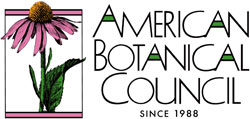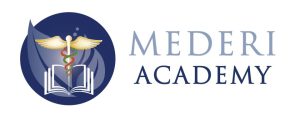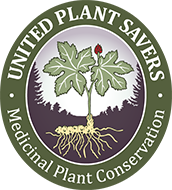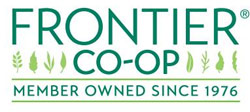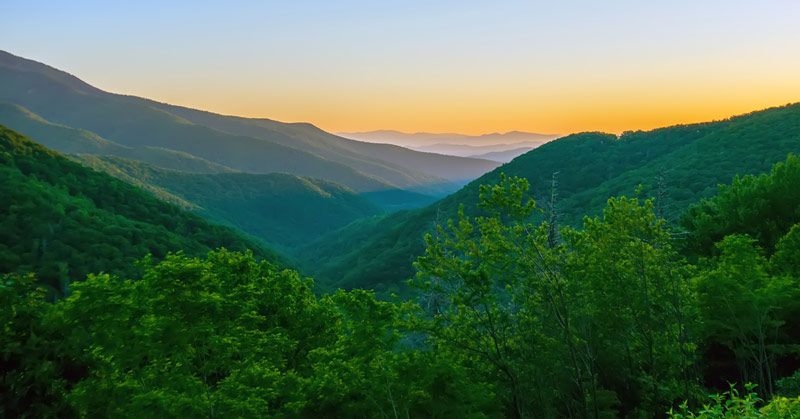
May 29 – June 1, 2020
Annual symposium at Blue Ridge Assembly, Black Mountain, NC, May 29 – June 1, 2020.
Theme: Restoring Immunological Balance with Botanicals
Highlights: This symposium offers more than 40 presentations on clinical applications of botanical medicine. Special features: Friday pre-conference intensive Botanicals for Mitigating the Health Effects of Glyphosate and other Environmental Toxins with Donald Yance, Saturday night keynote presentation Using Biophilia Practice and Shinrin Yoku for Personal and Planetary Healing with Chanchal Cabrera, plus Friday field studies, panel discussions, medicine-making classes and herb walks in a beautiful retreat setting.
Speakers and topics
Schedule
Continuing Education
Registration information:
Registration Fees
$329 by March 4
$399 by April 8
$459 after that date
Registration fee covers all lectures, panel discussions, the keynote address and other group meetings. Extra fees for intensives, lodging and meals
Information: 541-482-3016

FRIDAY PRE-CONFERENCE EVENTS May 29
- Intensive: Mitigating the Effects of Glyphosate and other Environmental Toxins for the Prevention of Chronic Disease and Health Optimization – the Application of Hormesis and Herbal Medicine with Donald Yance, RH (AHG)
- Ethnobotanical and Native Plant Field Study with David Winston, RH (AHG)
- Ecology, Propagation and Cultivation of Native and Oriental Medicinal Herbs with Joe Hollis at Mountain Gardens in Burnsville, NC THIS EVENT IS FULL
Read more about Friday intensives
FEATURED PRESENTATIONS May 30 – 31
Botanical medicine integrated with the latest research. More than 40 lectures including:
- Targeting IL-1 in Immunotherapy for Cancer and other Diseases using Botanical Medicine
- Anxiety: More than an Over Aroused State
- Lymphagogues and Alteratives: Lessons in Herbal Immunology
- The Yin and Yang of Hormone Balance: A Botanical and Nutritional Medicine Approach to Hormone Deficiency and Endocrine Disruption
- Diabetes, Obesity and Related Diseases
- Combining Herbs and Essential Oils for Strengthening and Energizing the Nervous System
- Women, Autoimmunity and Estrogen Metabolism
- Keynote Address: Nature, Spirit, Medicine – Using Biophilia Practice and Shinrin Yoku for Personal and Planetary Healing
Blue Ridge Assembly
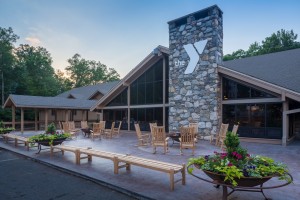
Blue Ridge Assembly, 84 Blue Ridge Circle, Black Mountain, North Carolina
The symposium site is nestled on a mountainside surrounded by 1200 forested acres with two rushing streams. Lodging, dining and lectures are all within walking distance. Blue Ridge Assembly is 40 minutes east of Asheville, NC.
Blue Ridge Assembly–much more than just a hotel! Read about it here.
All inclusive lodging and meal packages start at $188 total for three night’s lodging and eight meals. Commuter meals are also available for $72 for the weekend.
Blue Ridge Assembly Lodging and Meals Online Registration
Blue Ridge does not take reservations by phone.
Friday May 29
Pre-symposium events at Blue Ridge Assembly. Participants may reserve lunch in advance from Blue Ridge here (“Early arrival needs”). Symposium registration required to attend these extra events.
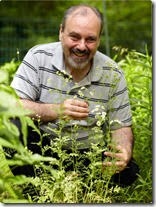
10:00 AM – 3:00 PM
Ethnobotanical and Native Plant Field Study
David Winston, RH(AHG)
Herbalist, ethnobotanist and researcher David Winston leads a journey into the traditional and current uses of the plants found on the grounds of Blue Ridge Assembly. This event fills every year so please register early! 35-person limit. ($69)
Read more about the Field Study here.
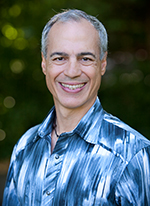
1:00 PM – 5:15 PM
Intensive: Mitigating the Effects of Glyphosate and other Environmental Toxins for the Prevention of Chronic Disease and Health Optimization – the Application of Hormesis and Herbal Medicine
Donald Yance, RH (AHG)
Protecting our health in the face of widespread use of environmental chemicals is becoming one of the most pressing challenges of our times. This intensive presents research on antibiotic resistance, endocrine disruption and other effects, and how botanicals and nutrients can work in concert with hormesis (low-dose exposure) to expand the range of an individual’s health stability. ($89)
Learn more about this intensive.
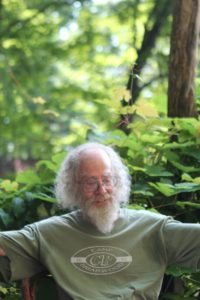
1:00 PM – 5:00 PM
Ecology, Propagation and Cultivation of Native and Oriental Medicinal Herbs at Mountain Gardens
Joe Hollis
Sorry this event is now full:
Mountain Gardens is a forty-year-old botanical garden incorporating the largest collection of medicinal herbs in the eastern US. Follow expert botanist and horticulturist Joe Hollis on a leisurely plant walk with detailed information on the ecology, propagation and cultivation of the herbs. We also look at the Mountain Gardens nursery, apothecary and seed bank. Limit 20. ($59)
5:00 PM – 8:00 PM
Registration at Blue Ridge Assembly, Exhibit Hall Opens
(5 – 7 PM Live old time mountain music. Come join the fun!)
Saturday May 30
7:30 AM – 8:30 AM Breakfast (for those who’ve purchased meals beforehand)
7:30 AM – 8:30 AM Registration: Blue Ridge Center Lobby
8:30 AM – 9:15 AM Opening Meeting: Washburn Auditorium
(Concurrent lectures–choose one–no need to sign up in advance.)
9:30 AM – 11:00 AM
Women, Autoimmunity and Estrogen Metabolism
Mary Bove, ND
Hormonal imbalances impact a woman’s health and contribute to manifestations of autoimmune disease in menopausal women. Review estrogen metabolism pathways and identify botanical, nutritional, dietary and lifestyle interventions for autoimmune conditions common to women. A traditional herbal approach combined with an evidence-based review of current research examines potential botanical and nutritional treatments for hormonal regulation, optimizing estrogen metabolism, quenching free radicals, turning down the inflammatory pathways, and offering symptom relief.
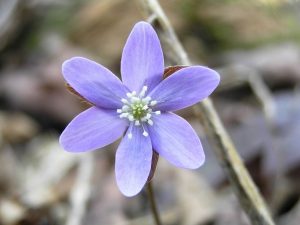
Taming the Dragon: Botanical Approaches for Inflammatory Bowel Disease (IBD)
Katie Stage, ND, RH (AHG)
Crohn’s disease and ulcerative colitis are collectively referred to as inflammatory bowel disease (IBD). Both conditions can cause disabling symptoms and impair the quality of life of those diagnosed. In this session we compare and contrast the risk factors, common symptoms, pathophysiology, and diagnoses of both conditions. Typical pharmacological interventions are discussed, as well as effective botanical and whole person approaches to treatment.
Restorative and Nutritive Tonics
David Winston, RH (AHG)
In every herbal tradition there are herbs used to help prevent illness, restore overall health and tonify the body. In Ayurveda they are known as rasayanas, in TCM, kidney yang tonics, Qi tonics or blood (xue) tonics and in the West they get lumped into the category of adaptogens. The problem with calling them adaptogens is that many of these herbs, such as amla fruit, astragalus, nettle seed, goji berry, sea buckthorn or processed rehmannia do not fit the definition of an adaptogen, so what are they? I propose calling them restorative tonics. In this class we discuss the restorative tonic materia medica, and mineral or nutrient-rich herbs that enhance bone density, improve the integrity of the skin, hair, nails and teeth, and provide easily absorbable magnesium, calcium, iron, zinc, iodine, potassium and other essential nutrients.
Herb Walk–Plant Personalities of Appalachian Botanicals
CoreyPine Shane, RH (AHG)
Herbal remedies, unlike pharmaceuticals, are complex and often have more than one action on the body. The health issues that people experience are even more complex. It could be said that a major part of western herbalism is matching the unique signature of a plant, its personality if you will, with the personality of the imbalance. On this plant walk we’ll focus on a small number of plants, diving deep into the specifics of when they can be used and for whom.
11:00 AM – 11:30 AM Refreshments and Exhibit Break
11:30 AM – 1:00 PM
Revisiting the Many Faces of Testosterone: How Botanicals Play a Significant Regulatory Role
Kenneth Proefrock, ND
There is still a lot of misunderstanding and confusion about the roles that testosterone plays in the physical and emotional health of both men and women. It is such a versatile steroid hormone that it has some biological activity on virtually every tissue in the body. During this discussion we visit on lifestyle activities that impact testosterone production, the metabolism of testosterone in men and women throughout life, and the nutritional and biochemical factors involved in its activity. Botanicals and nutritional agents include Cissus quadrangularis, Tribulus terrestrials, Withania somniferum, Pfaffia paniculata, Hemidesmus indicus, Rubia cordifolia, Panax spp, Serenoa repens, Pygeum, Catuaba, zinc monomethionine aspartate, L-Glutamine, L-Threonine, glucuronolactone, and several flavonoids.
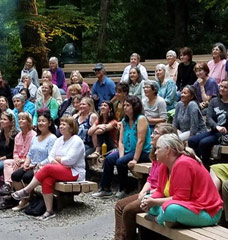 Chronic Skin Conditions: Case Review of Seborrheic Dermatitis
Chronic Skin Conditions: Case Review of Seborrheic Dermatitis
Chanchal Cabrera, RH (AHG)
Using a case of seborrheic dermatitis as an example, we discuss topical and systemic treatments for chronic skin conditions. Includes an investigation of the therapeutic uses of detoxification aids (e.g. lymph drainage massage, sauna, hydrotherapy and skin brushing), essential oils (e.g.palmarosa, rosewood, tea tree) and alteratives/blood purifiers (including Rumex crispus, Arctium lappa, Scrophularia nodosa, Fumaria officinalis, and Stillingia sylvatica).
Substance Addiction and Recovery: Herbal Strategies for Emotional and Physical Pain
Jennifer Williams, DACM, LAc
This presentation includes current evidence on chronic pain mechanisms, opioid addiction pathways, and plant-based recovery. It includes the emerging evidence linking emotional trauma to chronic conditions and the disruption of the pain regulating system. We focus on commonly used substances of overuse, including prescribed medications and other substances (including nicotine, cannabis, alcohol, methamphetamines, opium, cocaine and heroin). We present the botanical and nutritional therapies useful in managing chronic physical pain, emotional pain and addiction, with strategies for recovery without harm. Herbs for treatment include: corydalis, notoginseng, red ginseng, carthamus, frankincense, Salvia miltiorrhiza, kudzu rehmannia, holy basil and many others.
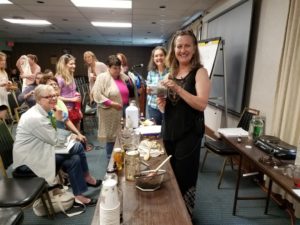
Herbal Tea Apothecary: Teas for Every Body System, Energetic Tissue State and Constitution
Teresa Boardwine, RH (AHG)
Water extracts are an easy and essential source of nutrition and holistic care. Herbal medicines delivered as teas are under-appreciated, powerful allies and can correct imbalances, build vitality and offer therapeutic results. Learn how to formulate typical western herbal teas for each body system.
1:00 PM – 2:00 PM Lunch
1:00 PM – 2:30 PM Exhibit Hall open in Pavilion
2:00 PM – 3:30 PM
Targeting IL-1 in Immunotherapy for Cancer and other Diseases using Botanical Medicine
Donald Yance, RH (AHG)
Pro-inflammatory processes are a hallmark of cancer, heart disease and all other chronic diseases. Interleukin1 (IL1) includes a family of closely related cytokines which affect inflammatory pathways. A new major causative trigger to this inflammatory catabolic is the IL B1/Inflammasome (NLRP3). The IL-B1/inflammasome is essential for maintaining a delicate balance between pro- and anti-inflammatory signals in order to generate an appropriate immune response without harming the host. Recent research indicates that several botanical compounds negatively regulate the downstream products of NLRP3, illustrating the efficacy of herbal medicine for treating cancer, cardiovascular diseases and other chronic age-related diseases.
Mushroom Spirit Medicine
Christopher Hobbs, PhD, LAc
This lecture presents the healing benefits of fungi as spiritual guides, with a focus on the history of the psilocybin species. We discuss the abundant scientific research on the clinical benefits of Psilocybe, starting in the 1950s. These early studies brought to light the great potential of psilocybin mushrooms for healing the mind and spirit and the damaged psyche through their ability to dissolve our ego and connecting us with spirit. Some of the volunteers in these studies reported having transcendental experiences and profound spiritual awakenings that lasted for years. This presentation also presents current research on a very effective treatment for resolving symptoms of serious depression, anxiety, and addiction, with few side effects or worry of addiction. Common species of Psilocybe growing in the U.S. will be covered, along with their chemistry and pharmacology.
Principles of Combining Herbs and Essential Oils: Musculoskeletal Conditions (Arthritic Pain, Fibromyalgia, Injuries, Muscle Spasm)
David Crow, LAc
One of the safest and most effective ways of using essential oils is in aromatic preparations for external applications, which make them a primary treatment for musculoskeletal conditions when combined with anti-inflammatory, analgesic and antispasmodic herbs. Herbs and essential oils, although not as powerful as prescription medications, can offer great relief when combined and used properly. Learn the most important herbs and oils to help relieve musculoskeletal pain and inflammation; the pro-inflammatory nature of essential oils and how to safely use them for anti-inflammatory purposes; the best combinations for protecting the joints; what types of pain respond best; and how to use herbs and oils with other treatment modalities. Includes formulas for soft tissue injuries, sprains, strains, whiplash, muscle spasm, arthritic pain and fibromyalgia.
Herb Walk
Doug Elliott
Whether he’s pointing out poison ivy, pontificating on poke sallet, crooning about creasy greens, jiving about ginseng, or extolling the virtues of dandelions, this herbalist, author, and storyteller will delight and amaze you with his broad, practical, scientific and cultural knowledge of the area’s many useful wild plants.
3:30 PM – 4:00 PM Refreshments and Exhibit Break
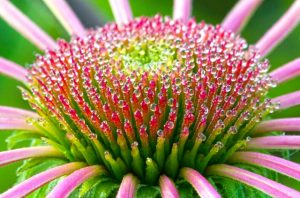
4:00 PM – 5:30 PM
The Yin and Yang of Hormone Balance: A Botanical and Nutritional Medicine Approach to Hormone Deficiency and Endocrine Disruption
Jason Miller, DACM, LAc
Botanical medicine is rich with compounds that enhance hormone activity by working with the body to activate hormonal receptor networks, enhance hormone efficiency, improve hormone production, and regulate hormone metabolism. When applying botanical medicine for hormone balance, TCM has given us a very helpful road map for understanding the state of the body with regard to the balance of Yin and Yang. By combining well-documented botanical and nutritional compounds to enhance detoxification and hormone metabolism, we can also reduce the deleterious effects of endocrine disrupting toxins in our environment and treat the underlying causes of hormone deficiency without relying on the disruptive effects of hormone replacement therapy.
Anxiety: More than an Over Aroused State
Mary Rondeau, ND, RH(AHG)
Anxiety is commonly categorized as an over aroused state and thus treatments are recommended to “calm” or reduce over-activity in the brain. Cutting-edge brain mapping is now being used to identify multiple sub-types of anxiety. In addition to brain sub-types, body sub-types are also being identified. This presentation covers pharmaceuticals, nutraceuticals, botanicals, diet and lifestyle treatment modalities to truly individualize a plan for an anxious individual.
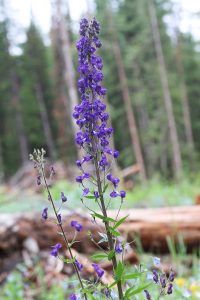
The Ethnobotany of the African Diaspora
Marc Williams, MA
This class focuses on the healing traditions coming to the Americas from Africa. These traditions have evolved over time as the various peoples, brought here through slavery, have interacted with Europeans and Indigenous groups. The presentation includes a discussion of the most common medicinal and culinary plants brought to the Americas from Africa, and their traditional and current uses for food and medicine.
Sweet Medicine: Herbal-infused Honeys and Herbal Syrups (Demonstration)
Robin McGee
Sometimes we have to get creative to get herbal remedies into reluctant kids and adults. In this demonstration class we learn to make herbal infused honeys and herbal syrups so delicious even the most taste-sensitive folks will be asking for more. Come, tempt your taste buds!
5:30 PM – 7:00 PM Dinner and Exhibit Break
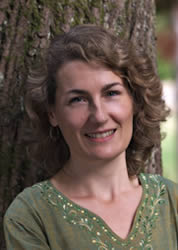
Keynote: Nature, Spirit, Medicine—Using Biophilia Practice and Shinrin Yoku for Personal and Planetary Healing
Chanchal Cabrera, RH (AHG)
Honoring the innate resonance and connection we feel with ‘Nature’, medical herbalist Chanchal Cabrera explores the modern science of the genome and the descriptions of sacred geometry in nature to explain this seemingly universal spiritual / mystical experience. Drawing from over 30 years of study and patient care, she describes how connection with nature can be harnessed for clinical benefit in a contemporary herbal practice.
Sunday May 31
7:30 AM – 8:30 AM Breakfast
9:00 AM – 10:30 AM
Panel Discussion: Clinical Approaches to Immune-Centered Illness
Mary Bove, ND, Mary Rondeau, ND, RH(AHG) and Katie Stage, ND
Each panelist describes her principal approach when presented with an immune-centered illness (whether autoimmune, cancer, etc) What are the three main areas of focus when seeing a patient for the first time? What three systems do we consider (eg HPA, endocrine/thyroid, metabolic etc?) What are the most important labs? What are the three main botanical approaches and the three main dietary and lifestyle approaches we start with in such situations?
10:30 AM – 11:00 AM Refreshments and Exhibit Break
11:00 AM – 12:30 PM
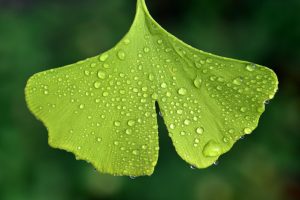
Neuroplasticity and the NMDA receptor: Botanical and Nutritional Influences on Neurological Remodeling
Kenneth Proefrock, ND
Experience-dependent plasticity is a fundamental property of the brain and our nervous systems are constantly remodeling, but such remodeling can be impaired in a wide range of neurological and psychiatric disorders. Several clinical studies suggest that augmenting or reducing N-methyl-D-aspartate receptor (NMDA) signaling can have a significant impact on experience-dependent plasticity. Augmenting NMDA activity has the effect of improving cognition and mental processing, blunting NMDA activity has been shown to reduce PTSD episodes, anxiety and the frequency and severity of seizure activity. We discuss the neurotransmitter actions of glutamate, aspartate, glycine and serine on the NMDA receptor as well as the impact of NMDA agonists like Tabernanthe iboga, and take a look at some of the more recent pharmaceutical interventions that have been instrumental in informing our current perspective on NMDA activity.
Essential Oil Therapeutics: Internal Uses for Clinic and Home
Christopher Hobbs, PhD, LAc
Essential oils (EO) comprise all the volatile compounds in plants and other organisms. They are mainly composed of numerous green leafy volatiles, hydrocarbons, mono-, and sesquiterpenes. These odoriferous compounds have a myriad of biological actions, especially antimicrobial, sedative and smooth muscle-regulating activities (blood vessels, uterus, GI tract, urethra and ureter, and bronchial airway). EO are often used in inhalation and aromatherapy, but this class will be centered on the internal drop-dose uses of the top 50 in common practice. We explore the safety, dosage, and major clinical uses, primarily drawing on the presenter’s experience, the experience of other practitioners, and research studies published in peer-reviewed journals.
Keeping Kids Healthy
Mary Rondeau, ND, RH(AHG)
Children are filled with love and sticky fingers and manage to bring home every bug from school. As a result, common childhood ailments regularly include diarrhea, vomiting, earaches, and coughs. While these common childhood conditions are important for strengthening the immune system, they can be burdensome to a working family. Half the battle is having a well-stocked botanical medicine cabinet, and the other half is getting kids to take the herbal preparations. Learn about creative (and tasty!) ways to get these medicines into kids. Ayurvedic and western dietary and herbal preparations are discussed.
Topical Botanical Therapies to Ease Substance Withdrawal
Jennifer Williams, DACM, LAc
This demonstration includes ingredients, formulations, and procedures for making topical oils and other preparations using botanicals and other quality ingredients. Participants will take home a salve for pain and foot soaks for recovery. We explain why some botanicals are tinctured using alcohol to extract properties and why some properties are extracted through heat or steam. The pharmacological properties of botanicals and their constituents are examined, including: corydalis, notoginseng, carthamus, frankincense, cicada molt, clove, calendula, bees wax, olive oil, coconut oil, menthol, emulsifiers, boric acid, and more.
12:30 PM – 1:30 PM Lunch
12:30 PM – 2:00 PM Exhibit Hall Open
2:00 PM – 3:30 PM
Medicinal Mushrooms in Clinical Practice
David Winston, RH (AHG)
In China and other Asian countries mushrooms are not only commonly used for food but also as medicines. Some Native American and European cultures also have used fungi for their medicinal qualities. In the last 30 years research has confirmed that many of these fascinating life forms (they are not plants or animals) have powerful therapeutic effects for both preventing and treating many diseases. In this class we discuss the most active and useful medicines in the fungi pharmacopoeia and the best ways to use them to achieve maximum efficacy.
Rubefacient and Vulnerary Botanicals for a Complicated Case
Chanchal Cabrera, RH (AHG)
Drawing from over 33 years of clinical experience, this class describes the case of a heavily medicated senior with varicose eczema, varicose ulcers and antibiotic resistance. Using this case illustration, we discuss the materia medica of anti-microbial, anti-inflammatory, anti-edema, vulnerary, rubefacient and anti-pruritic herbs. Explores the use of drawing poultices, healing oils, systemic herbs and orthomolecular nutrition for connective tissue repair.
Cultivating Skin Microbiome Radiance with Botanicals
Mary Bove, ND
Microbiome health reaches further than the gut, contributing to the health and wellness of the skin. The microbiome of the skin is better understood now than ever before, and helps shed light on many chronic skin conditions and possible treatment strategies. Discussion of oral, systemic and topical botanical preparations along with probiotic strategies, and simple daily practices for a more radiant skin microbiome are all included.
Herb Walk
Doug Elliott
Refresh yourself in the beautiful Blue Ridge Assembly forest with Doug, the consummate story-teller, entertainer and harmonica player. Scientific medicinal plant information and folklore are combined in a seamless whole in this walk on the wild side!
3:30 PM – 4:00 PM Refreshments and Exhibit Break
4:00 PM – 5:30 PM
In the Zone: Research Considerations for Microdosing Entheogens
Katie Stage, ND, RH (AHG)
Entheogens are those herbs which bring us in touch with the divine. Use of these herbs has an important role in supporting whole person healing and connection. However, the use of small doses of entheogenic herbs is an emerging therapy that supports mood, enhances creativity, and modulates neuroplasticity, without impairing the ability to function in daily life. This session explores the herbs, history, and research supporting this fascinating herbal approach.
Prostate Cancer: A Comprehensive and Collaborative Approach
Jason Miller, DACM, LAc
Prostate cancer is the second most common cancer in men and, as men live longer, they are more likely to develop the disease. In general, prostate cancer is a slow growing cancer, and many men diagnosed with low grade disease are recommended to follow an approach called “‘watchful waiting.” Watchful waiting entails allowing time to pass while monitoring the PSA at regular intervals, and most men with a diagnosis of prostate cancer will die with the disease, rather than from it. A botanical medicine approach can play a powerful role in managing symptoms, regulating androgen metabolism, and slowing disease progression.
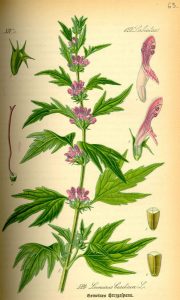
Principles of Combining Herbs and Essential Oils: Relaxing the Nervous System (Stress, Anxiety, Insomnia, Tension Headaches and Chronic Adrenal Overstimulation)
David Crow, LAc
When combined, herbal medicine and aromatherapy are doubly effective for reducing stress, tension and anxiety, and there are many safe and enjoyable ways of using them together. Learn the links between olfaction, the limbic system and aromatherapy for calming the nervous system, and the major relaxant, sedative and anxiolytic herbs and essential oils. Use them in formulas for reducing stress and tension, nervousness and irritability, tension headaches, stress-related insomnia and chronic adrenal overstimulation.
Wild Food Farmacy in your Backyard
Vickie Shufer
Find out which plants growing in your backyard can also be used to make food as well as their medicinal benefits. From edible greens such as dandelions, chickweed, and cresses to herbal teas that include bee balm, peppermint, and spearmint, as well as the fruits of cherries, mulberries and blueberries, we identify, prepare and taste samples of wild foods that have been gathered in the backyard.
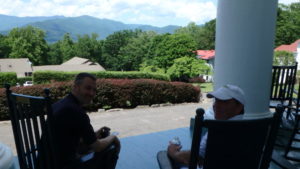
6:00 PM – 7:00 PM Dinner and Exhibit Break
7:30 PM – 9:00 PM Fireside program in the amphitheater with Teresa Boardwine
Monday June 1
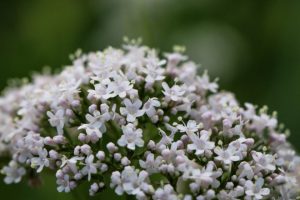
7:30 – 8:30 AM Breakfast
8:30 AM – 10:00 AM
Lymphagogues and Alteratives: Lessons in Herbal Immunology
Kenneth Proefrock, ND
The goal of this discussion is to bring the physiology of lymphatic structures to life and investigate the far-reaching roles that botanical medicines are able to play in regulating or modifying lymphatic function. This is a key step toward integrating immunology with organ physiology and ultimately managing many complex pathologies. There is an inevitable convergence of immunology with other disciplines through their common reliance on the lymphatic system which has important implications for various inflammatory and other diseases.
Principles of Combining Herbs and Essential Oils: Strengthening and Energizing the Nervous System (Antidepressant Effects, Protection against Neurodegenerative Conditions, Supporting Cognitive Function and Enhancing Concentration)
David Crow, LAc
Because many botanicals that are neuroprotective, nutritive and aromatic are directly linked to the brain through the olfactory system, numerous essential oils can be combined with these herbs to enhance their properties in safe and effective ways. These herbs and oils produce a range of actions including supporting cognitive functions, protecting the brain against toxins and aging, increasing memory and concentration and enhancing learning capacity. Many are also antidepressant and increase resistance to stress and may provide long-term protection against neurodegenerative conditions.
Botanical Strategies for Pelvic Pain and Endometriosis
Katie Stage, ND, RH (AHG)
Chronic pelvic pain affects up to 39% of reproductive-aged women. This session will explore common and less common causes of pelvic pain, including endometriosis. This is an area of great opportunity for practitioners, and of great need for women affected, as conventional treatments are limited and often ineffective. We discuss botanical treatments for pelvic pain and endometriosis, as well as supportive lifestyle approaches.
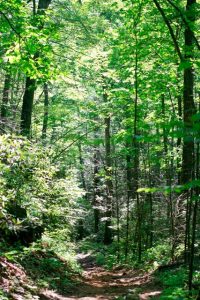
Oxymels and Vinegar Infusions
Teresa Boardwine, RH (AHG)
Making medicine for immediate consumption or digestive relief is easy when you use vinegar as the menstruum. This is a wonderful alternative to alcohol extracts to use in a free clinic and with those patients who cannot consume alcohol. Come join us to test delicious medicines, from fire cider to lobelia.
10:00 AM – 10:30 AM Refreshments and Exhibit Break
10:30 AM – 12:00 PM
Demystifying “Qi”: A Reverse-Engineering Approach to Understanding the Concept of Qi in Botanical Medicine
Jason Miller, DACM, LAc
The qi concept has been a stumbling block for collaboration and understanding between Traditional Chinese Medicine (TCM) and modern science for decades. Qi is often considered a non-scientific or pseudoscientific concept – primarily due its inability to be measured. In TCM, qi (in the body) is considered an immaterial substance that represents the functional quality of human physiology. Many botanical medicines from traditional Chinese herbal medicine (TCHM) are characterized by the way they affect the qi of the body. In the past several decades, a significant amount of scientific research has gone into understanding the molecular composition and biomedical actions of medicinal plants. A reverse engineering approach involves studying the molecules and their actions, and then correlating with TCM concepts.
Addressing Immune Health through the Ages: Infants to Seniors
Mary Bove, ND
Let’s talk immune health for all ages and what we can do to support this vital system. Plants contain a myriad of compounds that interact with the immune system, acting to nourish, balance, and support immune function. Review current science on several immune herbs for application and dosing along with fun simple recipes for the use as foods, beverages, and supplements. Herbs discussed: echinacea species, elderberry, astragalus, medicinal mushrooms, oregano, garlic, onions and ginger.
Diabetes, Obesity and Related Diseases
Christopher Hobbs, PhD, LAc
Causes, scientific insights into the processes involved, and probable outcomes of this constellation of conditions are discussed, with practical strategies to prevent, stabilize, reverse,and manage diabetes and obesity and related syndromes such as chronic inflammation, cardiovascular disease, and metabolic syndrome. A cross-cultural perspective is presented, emphasizing practical and sustainable traditional and scientifically-supportable methods, centering on herbal medicine, along with diet and healthy habits.
Herb Walk
Doug Elliott
Laugh and learn as Doug guides you through a wealth of medicinal herbs and regales you with stories of the plants, the medicines and the people of the Appalachians.
12:00 PM – 1:00 PM Lunch and Exhibit Break (Exhibit Hall closes at 1:00 PM Monday)
1:00 PM – 2:00 PM
Panel: New Discoveries in Botanical Medicine
Christopher Hobbs, PhD, Jason Miller, DACM and Teresa Boardwine, RH (AHG)
New botanical medicines and novel clinical uses are emerging every year–the panelists take a look at some of these new developments in the last year and how they can be of use to clinicians.
2:00 PM – 2:10 PM Closing
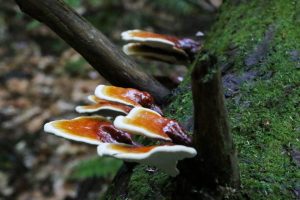
Teresa Boardwine, RH (AHG)
Teresa Boardwine operates the Green Comfort School of Herbal Medicine in the Blue Ridge Mountains of Virginia, where she offers classes, consultations and online access to her workshops. She has been teaching her hands-on medicine making classes for over 20 years. More about Teresa Boardwine.
1. Herbal Tea Apothecary: Teas for Every Body System, Energetic Tissue State and Constitution
2. Oxymels and Vinegar Infusions
3. Sunday night program in the Amphitheater
Mary Bove, ND
A clinical medical herbalist, Mary Bove had a practice in family medicine in Brattleboro, Vermont for over 20 years. where she assisted at the birth of a whole generation of children. She is the author of An Encyclopedia of Natural Healing for Children and Infants, and co-author of Herbs for Women’s Health. Since starting her herbal journey at age 18, Mary has held firm to three tenets: “Walk your talk, believe in the plants and practice herbalism every day in your life.” More about Mary Bove
1. Women, Autoimmunity and Estrogen Metabolism
2. Cultivating Skin Microbiome Radiance with Botanicals
3. Addressing Immune Health thru the Ages: Infants to Seniors
4. Sunday Panel: Clinical Approaches to Immune Centered Illness
Chanchal Cabrera, RH (AHG)
The faculty chair of botanical medicine at Boucher Institute of Naturopathic Medicine, Chanchal is a Fellow of the National Institute of Medical Herbalists (UK) and an herbal practitioner specializing in helping patients manage cancer. On her organic farm in British Columbia she runs therapy workshops for people with disabilities. More about Chanchal Cabrera.
1. Rubefacient and Vulnerary Botanicals for a Complicated Case
2. Chronic Skin Conditions: Case Review of Seborrheic Dermatitis
3. Keynote Address: Nature, Spirit, Medicine—Using Biophilia Practice and Shinrin Yoku for Personal and Planetary Healing
David Crow, LAc
A master herbalist, aromatherapist and acupuncturist with over 30 years experience, David Crow Is an expert in the Ayurvedic and Chinese medical systems. He is the author of In Search of the Medicine Buddha and the founder of Floracopeia, Inc. which supports ecologically sustainable agriculture in communities around the world. Through teaching and activism he promotes the creation of grassroots healthcare based on community gardens. More about David Crow.
Principles of Combining Herbs and Essential Oils Series:
1. Relaxing the Nervous System (Stress, Anxiety, Insomnia, Tension Headaches and Chronic Adrenal Overstimulation)
2. Musculoskeletal Conditions (Arthritic Pain, Fibromyalgia, Injuries, Muscle Spasm)
3. Strengthening and Energizing the Nervous System (Antidepressant Effects, Protection against Neurodegenerative Conditions, Supporting Cognitive Function and Enhancing Concentration)
Doug Elliott
Doug can show you how to make medicine out of common wild plants, and how to properly harvest a persimmon and use its seed to forecast the winter. He can explain the virtues of poison ivy and what might happen to you if you eat it. He knows ancient plant lore, plant riddles, and even songs about weeds and berries. More about Doug Elliott.
- Three Herb Walks
Christopher Hobbs, PhD, LAc
A fourth-generation herbalist, licensed acupuncturist, author, clinician, botanist, mycologist, and research scientist with over 35 years of experience with herbal medicine. Christopher Hobbs has a doctorate from UC Berkeley in phylogenetics, evolutionary biology and phytochemistry. He is also a founding member of the American Herbalists Guild. More about Christopher Hobbs.
- Diabetes, Obesity and Related Diseases
2. Essential Oil Therapeutics: Internal Uses for Clinic and Home
3. Mushroom Spirit Medicine
Joe Hollis
Joe Hollis has lectured, consulted and taught workshops in medicinal herb identification, cultivation and processing at Mountain Gardens and at various colleges and conferences in North Carolina for over 30 years. Mountain Gardens sells its seeds, plants and preparations at herb fairs and medicinal herb conferences, and via the internet. More about Joe Hollis and Mountain Gardens
1. Ecology, Propagation and Cultivation of Native and Oriental Medicinal Herbs at Mountain Gardens ($59) FULL
Robin McGee
Robin McGee is a community herbalist, organic gardener, herbal medicine-maker, writer and herbal educator in Anderson, SC. She has been studying, using and creating herbal medicines for more than a decade. Along with producing her line of herbal products, Wild Earth Botanicals, Robin teaches herbal medicine classes and workshops at Earthwise Learning Center, a classroom space on her family farm. More about Robin McGee.
1. Sweet Medicine: Herbal-infused Honeys and Herbal Syrups (Demonstration)
Jason Miller, DACM, LAc
Jason Miller practices botanical and nutritional medicine, acupuncture, and Asian bodywork at his clinic, Jade Mountain Medicine in Ashland, Oregon. He received his master’s degree in acupuncture and Oriental medicine from the Oregon College of Oriental Medicine in 2005 and completed a postgraduate internship at the “House of Celebrity Doctors” in Nanjing, China. He earned his Doctorate of Acupuncture and Chinese Medicine (DACM) from the Pacific College of Oriental Medicine in 2018. His approach bridges the frameworks of traditional and modern medicine in the management of chronic disease. More about Jason Miller.
1. Demystifying “Qi”: A Reverse-Engineering Approach to Understanding the Concept of Qi in Botanical Medicine
2. The Yin and Yang of Hormone Balance: A Botanical and Nutritional Medicine Approach to Hormone Deficiency and Endocrine Disruption
3. Prostate Cancer: A Comprehensive and Collaborative Approach
4. Monday Panel: New Developments in Botanical Medicine
Kenneth Proefrock, ND
A naturopathic physician practicing in Sun City, Arizona, Kenneth Proefrock specializes in difficult to treat conditions in patients of all ages. He is the Vice President of the North American Board of Naturopathic Examiners and chair of the biochemistry portion of the Naturopathic Physician’s Licensing Exam. More about Kenneth Proefrock.
1. Lymphagogues and Alteratives: Lessons in Herbal Immunology
2. Revisiting the Many Faces of Testosterone: How Botanicals Play a Significant Regulatory Role
3. Neuroplasticity and the NMDA receptor: Botanical and Nutritional Influences on Neurological Remodeling
Mary Rondeau, ND, RH (AHG)
Mary Rondeau specializes in natural medicine for chronic illness in Fort Collins, Colorado. Following medical school training at SCNM and residency training in Utah, she continued her education in southern India, working in various hospital and private practice settings. Reducing medication for children is one of her areas of expertise, and she has found a combination of adjustments in diet, lifestyle and herbal and nutritional supplementation to be very helpful. More about Mary Rondeau.
1. Keeping Kids Healthy
2. Anxiety: More than an Over Aroused State
3. Sunday Panel: Clinical Approaches to Immune Centered Illness
CoreyPine Shane, RH (AHG)
CoreyPine Shane, RH(AHG) is Director of the Blue Ridge School of Herbal Medicine and has spent over 20 years teaching students and helping clients by artfully blending Chinese and Western herbal traditions with a focus on local plants. As a seasoned wildcrafter he has extensive knowledge of wild plants as well as medicine making. CoreyPine believes that laughter is an essential part of any medicine chest, which is why he is part of the “Wise Guy” school of healing. More about CoreyPine Shane.
1. Herb Walk–Plant Personalities of Appalachian Botanicals
Vickie Shufer, MA
A naturalist and herbalist with a master’s degree in therapeutic herbalism, Vickie Shufer teaches classes on edible and medicinal plants, as well as outdoor education programs. She is the author of The Everything Guide to Foraging and was the editor/publisher of The Wild Foods Forum newsletter (1994 – 2014). She also owns and manages a native nursery, The Wild Woods Farm, where she propagates native plants. More about Vickie Shufer.
1. Wild Food Farmacy in your Backyard
Katie Stage, ND, RH (AHG)
Katie Stage is a naturopathic physician and professional member of the American Herbalists Guild. She is Associate Professor and Director of the Therapeutics Division at the Southwest College of Naturopathic Medicine (SCNM) in Tempe, Arizona. Her practice is focused on optimizing the health of those with endocrine, gastrointestinal, and mental health conditions. She is also a member of the Ric Scalzo Botanical Research Institute. More about Katie Stage.
1. Taming the Dragon: Botanical Approaches for Irritable Bowel Disease (IBD)
2. In the Zone: Research Considerations for Microdosing Entheogens
3. Botanical Strategies for Pelvic Pain and Endometriosis
4. Sunday Panel: Clinical Approaches to Immune Centered Illness
Marc Williams, MA
A well-traveled and experienced ethnobotanist, Marc Williams has taught hundreds of people about the marvelous world of plants, people and their interface, while working with over 50 organizations and online at the website www.botanyeveryday.com to improve the current global ecological crisis. His training includes a B.A. in Environmental Studies/Sustainable Agriculture and an M.A. in Appalachian Studies/Sustainable Development. More about Marc Williams.
1. The Ethnobotany of the African Diaspora
Jennifer Williams, DACM, LAc
Jennifer Williams, DACM, LAc is an acupuncturist and herbalist who is nationally board certified and licensed in Tennessee, North Carolina, and Virginia. She serves her local community at her clinic and learning studio in Green Mountain, North Carolina, and holds a Doctorate in Chinese Medicine and a PhD in Counseling Studies. She completed an internship at the Red Cross Hospital in Huaihua, China and teaches advanced diagnosis and acupuncture techniques for pain and comorbidities. She specializes in pain, autoimmune, post-deployment, and neurovascular presentations. More about Jennifer Williams.
1. Substance Addiction and Recovery: Herbal Strategies for Emotional and Physical Pain
2. Topical Applications to Ease Substance Withdrawal
David Winston, RH (AHG)
David Winston is an herbalist and ethnobotanist with over 40 years of training and clinical experience in Cherokee, Chinese and Western/Eclectic herbal traditions. He has had a clinical practice for over 30 years and is a herbal consultant to physicians throughout the USA and Canada. President of Herbalist & Alchemist, Inc. an herbal manufacturing company, he is also founder/director of David Winston’s Center for Herbal Studies, which features his highly respected Two-Year Clinical Herbalist Training Program. More about David Winston can be located at Herbal Therapeutics and Herbal Studies.
1. Friday Field Study: Ethnobotanical and Native Plant Field Study ($69)
2. Medicinal Mushrooms in Clinical Practice
3. Restorative and Nutritive Tonics
Donald Yance, RH (AHG)
An herbalist and certified nutritionist, Donald Yance practices at the Mederi Centre for Natural Healing in
Ashland, Oregon, where he specializes in the treatment of cancer and other chronic diseases. He is the founder and president of the Mederi Foundation, a nonprofit organization for professional education and clinical research in integrative medicine, and president and formulator of Natura Health Products. More about Donald Yance.
1. Friday Intensive: Mitigating the Effects of Glyphosate and other Environmental Toxins for the Prevention of Chronic Disease and Health Optimization – the Application of Hormesis and Herbal Medicine ($89)
2. Targeting IL-1 in Immunotherapy for Cancer and other Diseases using Botanical Medicine
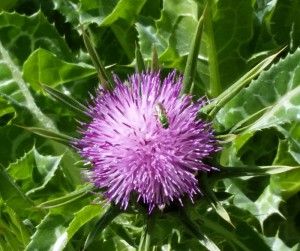
Registration Fees
$329 by March 4
$399 by April 8
$459 after that date
Registration fee covers all lectures, panel discussions and other group meetings. Extra fees for intensives, lodging and meals
Information: 541-482-3016
Lodging and Meal Information
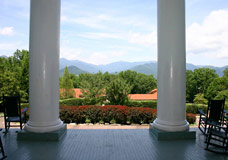 Blue Ridge Assembly, Black Mountain, NC
Blue Ridge Assembly, Black Mountain, NC
84 Blue Ridge Circle, Black Mountain, NC 28711
All inclusive lodging and meal packages start at just $188 for three night’s lodging and eight meals. Commuter meals are also available for $72 for the weekend.
Register for lodging and meals online
Blue Ridge does not take reservations by phone.
Alternate Lodging in Black Mountain about 10 minutes away:
Quality Inn (828) 669-9950
Super 8 Motel (828) 357-4150
NEW this year! Hampton Inn in Black Mountain (828) 669-1000
Camping:
The closest campgrounds are in Swannanoa, about 10 minutes away from Blue Ridge Assembly. They offer tent camping, RV hookups and camping cabins. Call KOA at (800) 562-5907 or Mama Gertie’s Hideaway at (828) 686-4258 for reservations.
Airport Transportation
The closest airport is Asheville Regional Airport. Airport van: Diamond Executive Car Transportation. Reservations: call (828) 281-8139 and mention the herb symposium. Please have your flight arrival and departure times ready when you call. Cost: $65 one way from the airport to Blue Ridge (45 minute trip) for one person. Fees are divided up if there’s more than one person per trip.
Cancellations
Before May 13, symposium and intensive fees will be refunded minus $50 processing fee per registrant. No refunds can be given after May 13, 2020. Please make all refund requests by email.
Continuing Education
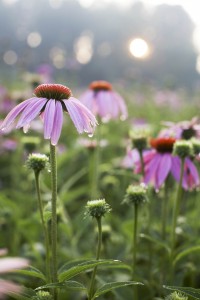
Continuing Education Credits (NEW! Please sign up for your CE credits when you fill out your registration form).
All applications have been submitted for CE, CME, CNE, PDA and CEUs for:
- Acupuncturists: Approved for maximum 22.5 PDA hours including Friday Field Study (NCCAOM). Details PDA credits.
- Naturopathic Physicians: Approved for maximum 21.5 CME hours of which 9 hours can be pharmacy, including Friday pre-conference intensive or Mountain Gardens Tour (OBNM). Details CME credits for NDs.
- Nurses: Pending approval, maximum 22 CNE contact hours including attendance at Friday Field Study. This activity has been submitted to North Carolina Nurses Association for approval to award contact hours. North Carolina Nurses Association is accredited as an approver of nursing continuing professional development by the American Nurses Credentialing Center’s Commission on Accreditation. (Note: $35 charge for nursing CNE due to high cost of new application.) Details on Contact Hours.
We will post application status and approvals as they are available. Number of credits depends on which lectures are attended.
CE Questions? Contact us and we’ll be happy to help.
Lecture Notes
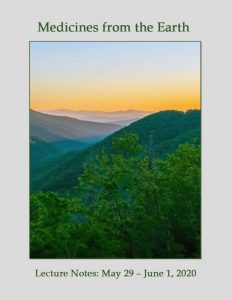
Lecture notes are compiled into an online book (proceedings) which is available to all registrants at no cost. In the beginning of May registrants will be sent a link and password to access the teacher materials online. Printed books are also available for $20 at the symposium ($30 afterwards).
Many thanks to Frontier Co-op for their sponsorship of the printed and online lecture notes book for this conference.
| Schedule Overview: Printable Version | |||||
| FRIDAY, May 29 | |||||
| 10:00 AM – 3:00 PM | Ethnobotanical and Native Plant Field Study David Winston ($69) | ||||
| 1:00 PM - 5:15 PM | Pre-conference Intensive: Mitigating the Effects of Glyphosate and other Environmental Toxins for the Prevention of Chronic Disease and Health Optimization – the Application of Hormesis and Herbal Medicine Donald Yance ($89) | ||||
| 1:00 PM - 5:00 PM | Ecology, Propagation and Cultivation of Native and Oriental Medicinal Herbs at Mountain Gardens Joe Hollis Limit 20. ($59) | ||||
| 5:00 PM - 8:00 PM | Registration in Blue Ridge Assembly Pavilion (5 – 7 PM Joe Hallock and Friends play old time mountain music) | ||||
| SATURDAY, May 30 | |||||
| 7:30 AM – 8:30 AM | Breakfast: Dining Room in Blue Ridge Center | ||||
| 7:30 AM – 8:30 AM | Registration: Blue Ridge Assembly Pavilion | ||||
| 8:30 AM - 9:15 AM | Opening Meeting—Washburn |
||||
| 9:30 AM - 11 AM | Women, Autoimmunity and Estrogen Metabolism Mary Bove | Taming the Dragon: Botanical Approaches for Irritable Bowel Disease (IBD) Katie Stage | Restorative and Nutritive Tonics David Winston | Botanical Field Walk CoreyPine Shane |
|
| 11:00 AM - 11:30 AM | Refreshments/Exhibit Break | ||||
| 11:30 AM - 1 PM | Revisiting the Many Faces of Testosterone: How Botanicals Play a Significant Regulatory Role Kenneth Proefrock | Chronic Skin Conditions: Case Review of Seborrheic Dermatitis Chanchal Cabrera | Substance Addiction and Recovery: Herbal Strategies for Emotional and Physical Pain Jennifer Williams | Herbal Tea Apothecary: Teas for Every Body System, Energetic Tissue State and Constitution Teresa Boardwine |
|
| 1:00 PM - 2:00 PM | Lunch and Exhibit Break | ||||
| 2:00 PM - 3:30 PM | Targeting IL-1 in Immunotherapy for Cancer and other Diseases using Botanical Medicine Donald Yance | Mushroom Spirit Medicine Christopher Hobbs | Principles of Combining Herbs and Essential Oils: Musculoskeletal Conditions David Crow | Herb Walk Doug Elliott |
|
| 3:30 PM - 4:00 PM | Refreshments/Exhibit Break | ||||
| 4:00 PM - 5:30 PM | Hormone Balance: A Botanical and Nutritional Medicine Approach to Hormone Deficiency and Endocrine Disruption Jason Miller | Anxiety: More than an Over Aroused State Mary Rondeau | The Ethnobotany of the African Diaspora Marc Williams | Sweet Medicine: Herbal-infused Honeys and Herbal Syrups (Demonstration) Robin McGee |
|
| 5:30 PM - 7:00 PM | Dinner Blue Ridge Center | ||||
| 5:30 PM - 7:00 PM | Exhibit Break | ||||
| 7:00 PM - 9:00 PM | Keynote: Nature, Spirit, Medicine—Using Biophilia Practice and Shinrin Yoku for Personal and Planetary Healing Chanchal Cabrera |
||||
| SUNDAY, May 31 | |||||
| 7:30 AM - 8:30 AM | Breakfast: Dining Room Blue Ridge Center |
||||
| 9:00 AM - 10:30 AM | Panel Discussion: Clinical Approaches to Immune Centered Illness Mary Bove, Mary Rondeau and Katie Stage |
||||
| 10:30 AM - 11 AM | Refreshments/Exhibit Break | ||||
| 11 AM - 12:30 PM | Neuroplasticity and the NMDA receptor: Botanical and Nutritional Influences on Neurological Remodeling Kenneth Proefrock | Essential Oil Therapeutics: Internal Uses for Clinic and Home Christopher Hobbs | Keeping Kids Healthy Mary Rondeau | Topical Botanical Therapies to Ease Substance Withdrawal Jennifer Williams |
|
| 12:30 PM - 2 PM | Lunch and Exhibit Break | ||||
| 2:00 PM - 3:30 PM | Medicinal Mushrooms in Clinical Practice David Winston | Rubefacients and Vulneraries—Topical Herbal Applications Chanchal Cabrera | Cultivating Skin Microbiome Radiance with Botanicals Mary Bove | Botanical Herb Walk Doug Elliott |
|
| 3:30 PM - 4:00 PM | Refreshments/Exhibit Break | ||||
| 4:00 PM - 5:30 PM | In the Zone: Research Considerations for Microdosing Entheogens Katie Stage | Prostate Cancer: A Comprehensive and Collaborative Approach Jason Miller | Principles of Combining Herbs and Essential Oils: Relaxing the Nervous System David Crow | Wild Food Farmacy in your Backyard Vickie Shufer |
|
| 6:00 PM - 7:00 PM | Dinner: Blue Ridge Center |
||||
| 5:30 PM - 7:00 PM | Exhibit Hall Open |
||||
| 7:30 PM - 9:00 PM | Outdoor Program by the Fire in the Amphitheater |
||||
| MONDAY, JUNE 1 | |||||
| 7:30 AM - 8:30 AM | Breakfast: Dining Room Blue Ridge Center | ||||
| 8:30 AM - 10:00 AM | Lymphagogues and Alteratives, Lessons in Herbal Immunology Kenneth Proefrock | Principles of Combining Herbs and Essential Oils: Strengthening and Energizing the Nervous System David Crow | Botanical Strategies for Pelvic Pain and Endometriosis Katie Stage | Oxymels and Vinegar Infusions Teresa Boardwine |
|
| 10:30 AM - 12:00 PM | Demystifying “Qi”: A Reverse-Engineering Approach to Understanding the Concept of Qi in Botanical Medicine Jason Miller | Addressing Immune Health thru the Ages: Infants to Seniors Mary Bove | Diabetes, Obesity and Related Diseases Christopher Hobbs | Herb Walk Doug Elliott |
|
| Noon - 1:00 PM | Lunch and Exhibit Break | ||||
| 1:00 PM - 2:00 PM | Panel: New Discoveries in Botanical Medicine Christopher Hobbs, Jason Miller and Teresa Boardwine | ||||
| 2:00 PM - 2:10 PM | Closing Meeting | ||||
ONLINE REGISTRATION
$329 by March 4
$399 by April 8
$459 after that date
Registration fee covers all lectures, panel discussions and other group meetings. Extra fees for intensives, lodging and meals
Questions? Contact us and we’ll be happy to help. Looking forward to seeing you there!










